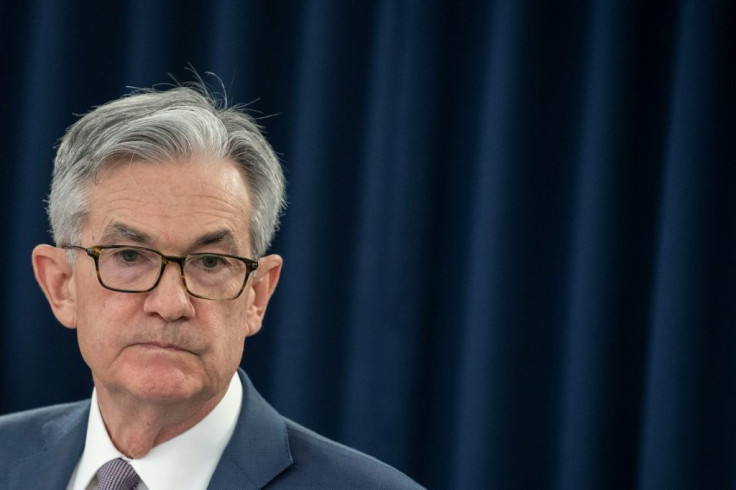Fed Seeks To Offer Reassurance Amid Push For New US Stimulus
Armed with a new interest rate strategy, the Federal Reserve will seek to reassure the US economy rattled by the coronavirus downturn as it wraps up its policy meeting on Wednesday.
The central bankers opened the final day of their two-day policy meeting to news that retail sales slowed in August, adding to the argument that the world's largest economy needs more support, which Fed chair Jerome Powell has been encouraging in increasingly urgent statements.
The meeting concludes amid renewed optimism that the White House and Democratic leaders in Congress will compromise on a new spending package following a historic collapse in GDP in the second quarter and data showing a worryingly high rate of new layoffs.
The United States is home to the world's worst coronavirus outbreak with more than 194,000 deaths, and in the pandemic's opening days the Fed slashed its benchmark lending rate to near-zero and rolled out trillions of dollars in liquidity lines to keep markets functioning.
Powell has pledged to do more if needed, but the Fed's options are limited since it can only "lend not spend."
As the meeting got underway on Tuesday, Nancy Pelosi, speaker of the Democrat-led House of Representative, announced a new attempt to break weeks of deadlock with the White House on additional aid for the beleaguered economy.
"We are committed to staying here until we have an agreement," she said on CNBC.
White House chief of staff Mark Meadows responded Wednesday saying he was "encouraged" by the renewed impetus towards a deal.
"I'm probably more optimistic about the potential for a deal in the last 72 hours than I have been in the last 72 days," he said on CNBC early Wednesday.
"The president has encouraged us that if they're really wanting a deal that he's willing to make a deal."
That message was quickly undermined by President Donald Trump, who renewed his attacks on Democrats while cheering a CNBC personality who called Pelosi "Crazy Nancy" in a live broadcast.
"Democrats are 'heartless'. They don't want to give STIMULUS PAYMENTS to people who desperately need the money, and whose fault it was NOT that the plague came in from China," Trump said on Twitter. "Go for the much higher numbers, Republicans, it all comes back to the USA anyway (one way or another!)."

The policy-setting Federal Open Market Committee (FOMC) resumed deliberations just after the Commerce Department released its latest report showing that retail sales rose 0.6 percent in August compared to the prior month -- lower than economists had projected -- while July retail sales were revised lower.
Online sales flatlined while auto sales struggled, but US restaurants and bars saw business surge as more were able to reopen.
Despite the generally rising trend, analysts worry the recovery cannot be sustained without more help from Congress to stimulate the economy, pointing to the record 31.7 percent collapse in annualized GDP in the second quarter.
Expanded unemployment benefits authorized by lawmakers in late March expired at the end of July.
"These are disappointing numbers, and they're probably a hint of what's to come in the wake of the ending of enhanced unemployment benefits," said Ian Shepherdson, chief economist at Pantheon Macroeconomics.
Although the unemployment rate dropped to 8.4 percent in August after spiking to 14.7 percent in April, huge numbers of people have continued to apply for unemployment benefits each week, indicating the layoffs are continuing.
At the meeting's conclusion, central bankers will release their latest forecasts on growth, inflation and unemployment, which are likely to reflect the better-than-expected recovery to date. Powell, who holds a press conference after the FOMC announcement at 1800 GMT, is nonetheless likely to renew his call for additional help.
"With the economy showing a slightly better than expected rebound and Congress paralyzed by partisan tensions, he may be even more circumspect," David Wessel, a senior fellow at the Brookings Institution, said of Powell.
The $2.2 trillion CARES Act passed in March included provisions like an extra $600 in weekly payments to the unemployed and a program of loans and grants to prop up small businesses, but those provisions expired in recent weeks.





















